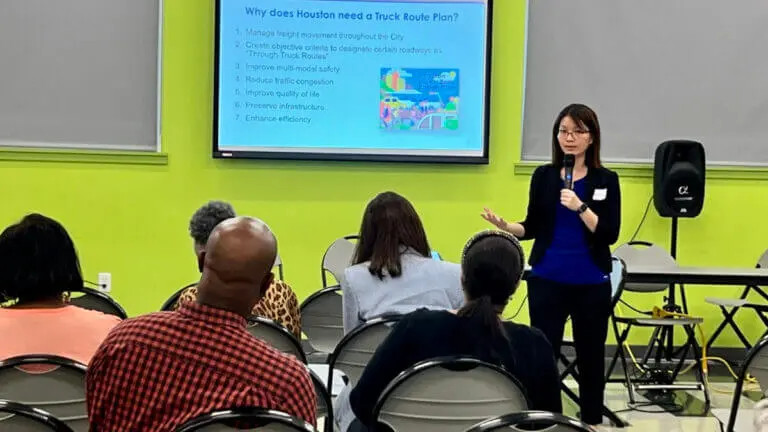Houston, known for its sprawling size and status as a major port city, is on the brink of implementing a significant change in its urban landscape. The city is considering a comprehensive truck route plan, which, if enacted, would make Houston the largest U.S. city to limit where large trucks can travel. This plan aims to improve road safety and quality of life but also raises concerns about its impact on local trucking operations and the broader supply chain.
Spearheaded by the city’s Planning & Development Department, the TRP is a key component of Houston’s Vision Zero action plan, which seeks to eliminate traffic fatalities and serious injuries.
The proposed plan categorizes roads into three types:
This initiative follows numerous complaints about traffic safety hazards, road damages, and decreased quality of life due to heavy truck traffic in residential areas.
While the city has engaged various stakeholders, including the Texas Department of Transportation and the Houston Movers Association, concerns remain. John Esparza, CEO of the Texas Trucking Association, emphasizes the need for a nuanced approach that considers the daily operations of local trucking companies, especially given Houston’s lack of zoning laws and the proximity of trucking companies to residential areas.

Houston’s status as one of the fastest-growing U.S. port cities adds complexity to this situation. The Port of Houston is a critical economic driver, generating substantial jobs and economic impact. However, the proposed TRP could have implications for the flow of goods in and out of the city, affecting not just local businesses but also the broader supply chain.
Jefferson Walker, operations manager at J.H. Walker Trucking, a local carrier, voices frustration over the proposed plan. He fears it will hinder their operational flexibility and ultimately serve as a means for the city to impose fines. Walker highlights the diverse range of vehicles used in their operations, from small vans to large tractor-trailers, and the logistical challenges posed by Houston’s vast and non-zoned layout.
An underlying issue in this debate is the use of road infrastructure and the associated taxation. Trucking companies contribute significantly to road maintenance through fuel and heavy vehicle use taxes. Restrictions on truck movements raise questions about the fairness of these taxes if access to roads is limited.
As Houston navigates these proposed changes, the balance between enhancing quality of life for residents and maintaining efficient operations for the trucking industry remains a delicate one. The outcome of this plan could set a precedent for how other growing cities manage the complex interplay of urban living and commercial transportation.